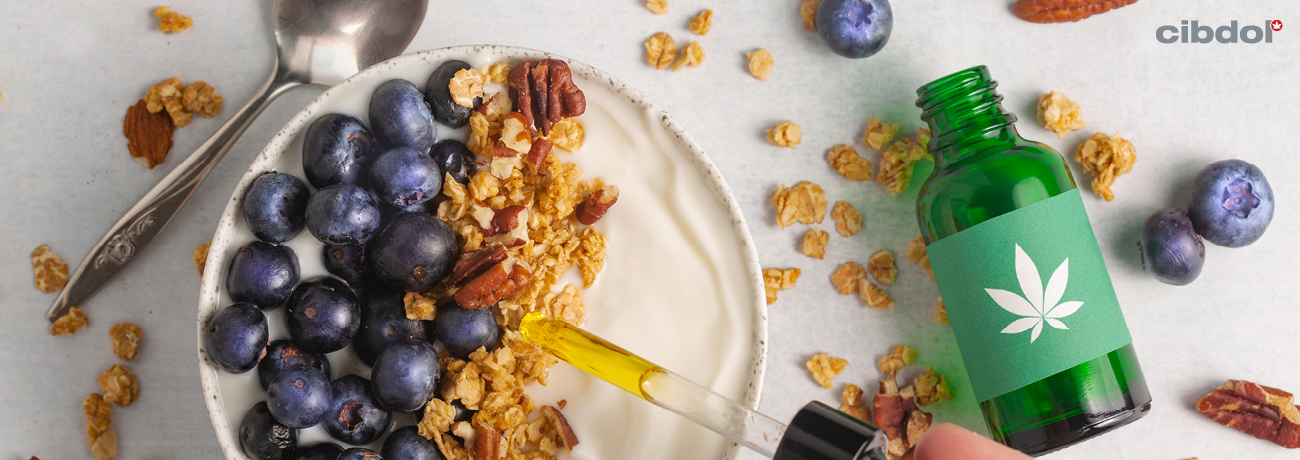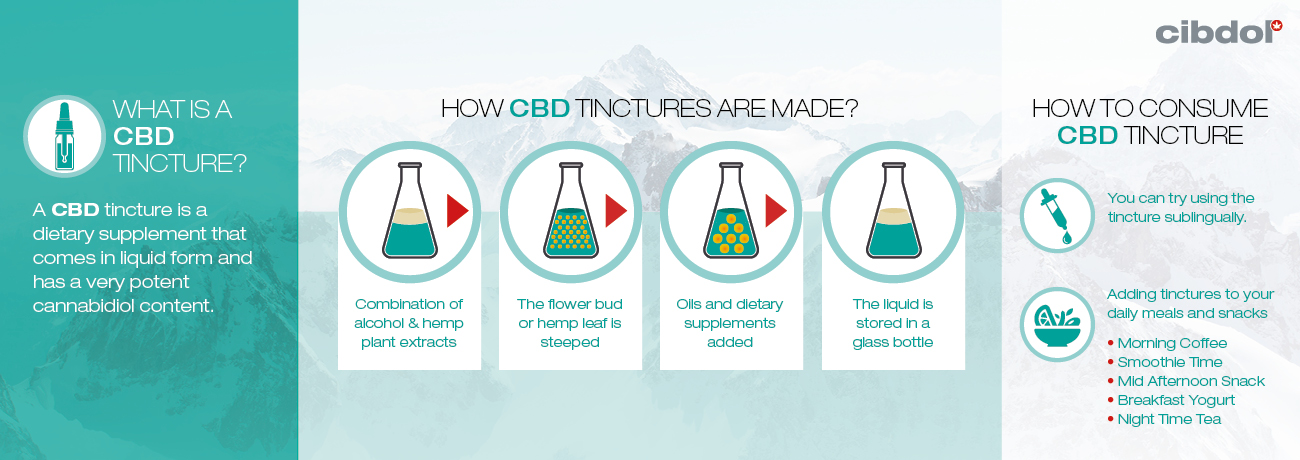What Is a CBD Tincture?

CBD is consumed in a variety of different ways
Although there is still a lot to learn about the full capabilities of CBD, there is one attribute we can be sure of—its versatility! CBD can be added to oils, food, beverages, topicals and tinctures. While this is fantastic for consumer choice, it also presents a bit of a mine field. With so many CBD products on the market, it's tricky to know which one is right for you.
CBD oils may form the lion's share of the market, but they are closely linked with CBD tinctures. And although at first glance these two products may appear similar, there are crucial differences. To help you understand the growing catalogue of CBD products, we're going to break down exactly what CBD tinctures are, how they are made, and most importantly, how they differ from traditional CBD oils.
What is a CBD tincture?
By definition, a tincture is "a medicine made by dissolving a drug in alcohol". In the case of CBD, this means using alcohol or glycerine to extract essential components from plant matter. While an alcohol base offers the highest rate of extraction and absorption once consumed, tinctures are also made using grapeseed oil, vegetable glycerine or coconut oil.
CBD-rich hemp flowers are left to steep in strong alcohol before being heated for several hours. The cannabinoids infuse with the spirit before any excess liquid is boiled off. What remains is a highly concentrated dose of full spectrum CBD. Unfortunately, alcohol used in the process isn't always ideal, and as the consumer market for CBD expands, many tinctures have flavoured agents or herbs added to them. Not only does this mask the taste, but depending on the additives used, some add health benefits.
How is CBD tincture used?
Once bottled, CBD tincture is administered via a dropper either on or under the tongue several times a day. The precise dose and frequency will depend on why you are using CBD, but as it's highly concentrated, less is often more. Sublingual application has the benefits of improved bioavailability, thanks to the membrane underneath the tongue. Administered this way, you should feel the effects of CBD in as little as 15 minutes.

If you opt for CBD tincture in a drink or food, then it can take up to an hour before the cannabinoid takes effect. The trade-off in activation time is that orally consumed CBD stays in your system for longer. Ultimately, the deciding factor will be your individual needs—no administration method is superior to another.
How is CBD tincture different from CBD oil?
We alluded to this earlier, but there is a crucial difference. While CBD oils can be CBD isolate, broad spectrum or full spectrum, CBD tinctures will always be full spectrum. Tinctures will not only have CBD, but trace amounts of other cannabinoids, terpenes, flavonoids, and flavouring agents such as orange oil.
Provided CBD tinctures are produced using hemp flowers; they should contain near undetectable amounts of THC and, therefore, minimal risk of psychoactive side effects. If a CBD tincture is made with an alcohol base, then it may not be suitable if you are pregnant, or have a specific medical issue.
Is CBD tincture right for you?
It is most common for CBD tincture to be used when a highly concentrated and fast-acting dose of CBD is required. However, as we've suggested before, deciding between CBD oils or CBD tinctures is a decision best discussed with your doctor. If you're not sure how to broach the subject of CBD with your doctor or physician, it helps first to understand what you want to achieve by taking CBD. You can read more about talking to your doctor about CBD here.
If you do decide to start using CBD tinctures, then the standard quality guidelines apply. Look for reputable producers who test their products, so you know what's in every bottle. Given CBD tincture is easily added to meals or drinks throughout the day, it's no surprise that this particular product is a popular choice.












